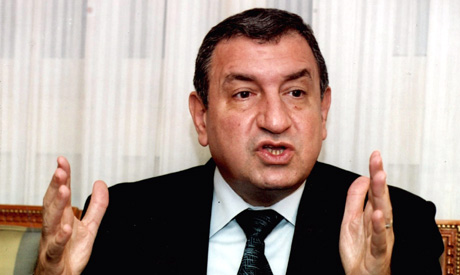
Egypt's new prime minister
Egypt's First Post-Revolution Prime Minister
Former transport minister Essam Sharaf appointed premier by country's military rulers, replacing Ahmed Shafiq.
As well as taking part in the Janaury 25 Revolution, Essam Sharaf has earned a reputation for his opposition to corruption and concern for workers' rights
Last Modified: 03 Mar 2011 11:57 GMT
Courtesy Of "Al-Jazeera"
Egypt's governing military council has accepted the resignation of Ahmed Shafiq, the prime minister, and appointed a former transport minister, Essam Sharaf, to form a new government, according to an army announcement.
The statement was carried on the military's Facebook page on Thursday and then confirmed by a military spokesman.
"The Supreme Council of the Armed Forces decided to accept the resignation of Prime Minister Ahmed Shafiq and appointed Essam Sharaf to form the new government," the statement said.
The council said it had tasked Sharaf with forming a new caretaker cabinet tthat would oversee the country's transition to civilian rule.
Sharaf took part in the mass rallies in Cairo's Tahrir Square which brought down Hosni Mubarak, Egypt's president, on February 11 after three decades in power.
Shafiq had been picked to head the cabinet by Mubarak before the president stepped down.
Since the fall of Mubarak, protesters have continued to call for a replacement of the current government, which includes several ministers from the toppled regime.
'Commands Respect'
Sharaf served as transport minister from 2004 to 2005. He resigned following a deadly train accident in protest over what he called a lack of vision and resources to improve the country's railway system.
After quitting government, he returned to academia to teach as a professor at Cairo University.
| Essam Sharaf | ||||||||
|
Al Jazeera's Sherine Tadros, reporting from Cairo, said the appointment of Sharaf was likely to get a warm welcome from the opposition.
"Just last night I was at a meeting of the youth and opposition groups. Certainly, the members of the Muslim Brotherhood, April 6 movement and other parties at that meeting had very positive things to say about him," she said.
"Essam Sharaf was in fact their man, their candidate if you like, when they were going to meet with the military supreme council talking about where to go next"
"Sharaf does command a lot of respect, for the fact that he's been in academia since he stepped down a few years ago and the fact that he stepped down in opposition to President Mubarak and the way the transport ministry was run."
However, she said protests, which had been called for Friday in an attempt to topple Shafiq, were still expected to go ahead but with a different message.
"They [protest organisers] want to keep up the pressure in terms of their other demands, like the release of political prisoners and the lifting of emergency law," she said.
"But they're saying very clearly that they're not going to be calling for a sit-in."
The military council had previously ordered the government to run the country's affairs for six months "or until the end of parliamentary and presidential elections". It is also examining constitutional reforms.




No comments:
Post a Comment